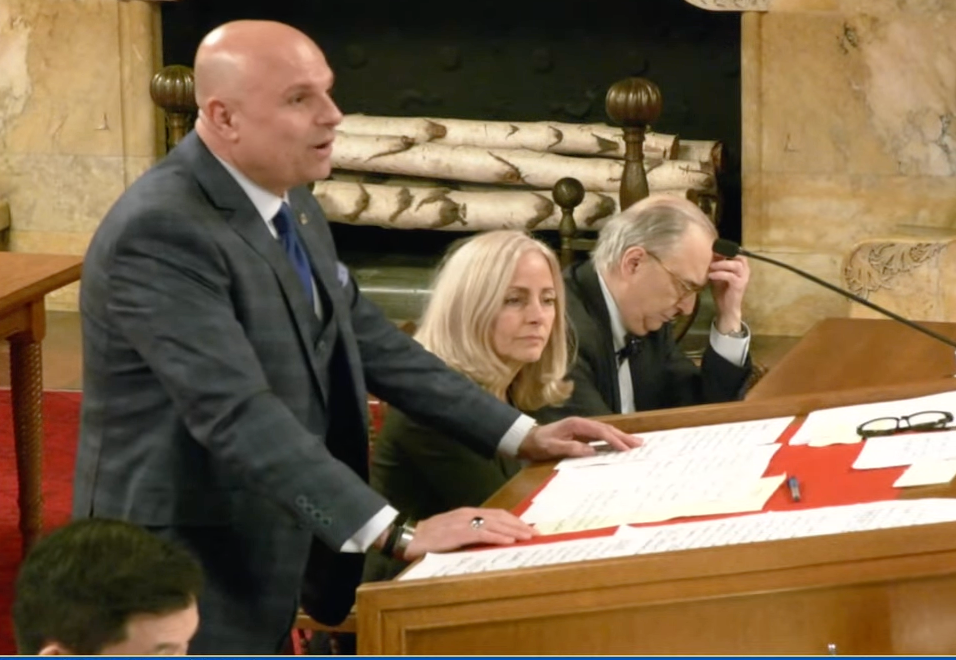Harvey Weinstein lawyer tells appeal court disgraced Hollywood producer was denied a fair trial
Appeal before New York’s highest court likely represents rapist’s last chance to overturn 2020 sex assault convictions
Harvey Weinstein’s lawyer claimed he was denied a fair trial after he became the “poster boy” for the #MeToo movement as he asked New York’s highest court to throw out his rape and sexual assault convictions on Wednesday.
In oral arguments before New York’s Court of Appeals, lawyer Arthur Aidala said the jury in the disgraced film mogul’s 2020 trial were unduly influenced when the judge allowed damning testimony from three women whose allegations weren’t part of the case.
Mr Aidala claimed Judge James Burke had also breached Weinstein’s legal rights when he ruled that prosecutors could confront Weinstein about separate allegations of sexual misconduct had he taken the stand at trial.
“It was his character that was on trial, it wasn’t the evidence that was on trial,” Mr Aidala told the judges.
“This is a case of a man courting a woman.”
Weinstein, 71, was convicted of rape and sexual assault against two women who had been pursuing a career in the film industry at the high profile February 2020 trial.

Weinstein was sentenced to 23 years prison. He is incarcerated at the Mohawk Correctional Facility in upstate New York, and was not present at the oral arguments being heard in Albany on Wednesday.
In June 2022, a mid-level appellate court rejected Weinstein’s attempt to overturn the convictionon similar arguments to those presented on Wednesday.
His appeal to the seven-judge Court of Appeals panel likely represents his final chance to overturn his New York convictions. The judges will release their decision at a later date.

Mr Aidala also claimed Weinstein’s convictions should be overturned because one of the jurors, Amanda Brainerd, had written a book about predatory older men who seduce younger women.
He claimed that she lied about when asked about the book during jury selection, and that he was denied the chance to strike her from the jury.
“Our client did not get a fair trial,” he said.
Mr Aidala’s impassioned arguments that there was no intent by Weinstein to commit sexual assault did not appear to convince the judges.
The issue of whether Weinstein’s misbehaviour towards other women should have been allowed to be raised with the Manhattan jury was taken up by Judge Madeline Singas.
Judge Singas told Mr Aidala that intent in sexual violence when the parties are known to one another is not always obvious.
She said: “(Weinstein’s) position, is this is very transactional. ‘I give them movie roles, I invite them to my hotel room, we have consensual sex’.
“The jury has a right to know that when these women are put in that position that he has done this time and time again, and he knows that this is not a consensual situation because he knows these other women haven’t consented to that and have run out.
“And amongst all the power plays, of his power in Hollywood, and his power over their careers, there has to be a different assessment because sexual violence is different in these kinds of cases than in a stranger rape.”
Steven Wu, appearing for the Manhattan District Attorney’s Office, told the court that Weinstein had no right to assume that women who agreed to go back to his hotel room would consent to sex.
Weinstein was first accused of sexual misconduct in 2017, and eventually more than 80 women in the film industry came forward to accuse him of non-consensual sexual activity.
In 2022, Weinstein was convicted in a separate case in California of forcible rape, forcible oral copulation, and forcible penetration with a foreign object.
He was sentenced to 16 years in prison in that case, and will not be freed if his New York appeal is successful.

